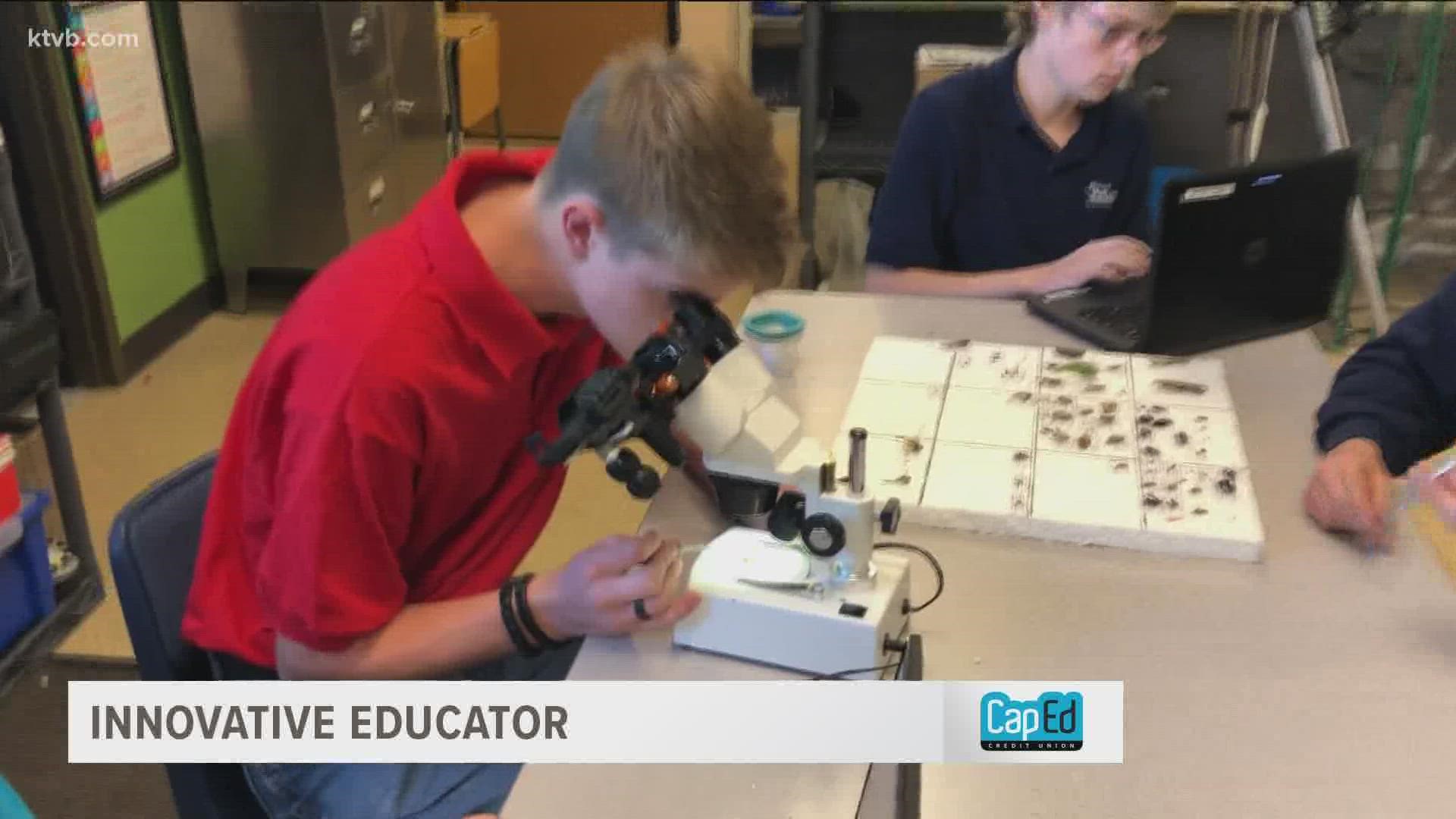MOUNTAIN HOME, Idaho — Editor's note: This content is sponsored by Idaho CapEd Credit Union.
Some people are interested in insects. Others are bugged by bugs.
"I was really afraid of hornets," sophomore Lucas Dunn said.
But spend some time collecting the creepy critters, and you just might come around.
"I actually realized that I like bugs a lot, even though I used to hate them a lot," Dunn said.
That's what happened to Dunn over the course of his entomology course at Richard McKenna Charter High School in Mountain Home.
"Collecting them is a lot of fun," Dunn said. "You get to identify them."
Science teacher Nick Triska is the driving force behind the "Insects of Elmore County" class project.
"This was all the students' work," Triska said. "They did all the work. I just sat in the driver's seat."
It's a very hands-on project.
"So the fact that they are able to touch an insect, put it under a microscope and actually be able to manipulate the microscope and manipulate the specimen and move it around and see what's going on, I think that's great being able to have that hands-on learning," Triska said.
"Really, the insect collecting allowed you to learn about the biodiversity here in a certain town on your own without having to read about it," sophomore Ryllen Stimpson said.
No one got stung, Triska said - and there was another surprise.
"I had an initial goal of 50 unique species, and I told them our goal was 100, and we made it to 87," Triska said.
In just four weeks the students collected those 87 species of ants, wasps, bees, and many others. They identified them, studied them, and then uploaded the information on them to their page on the iNaturalist website. Triska calls it citizen science.
"What's cool about the app iNaturalist is, if you have a cell phone, you can basically be a naturalist," Triska said. "So you can go take a picture, and you can actually help the scientific community by providing them with information on what is where."
"What I really found exciting about this is that I would be able to go out there and help the town receive information about what kinds of insects we have here, whether they're invasive or they came here naturally," Stimpson said.
Putting the impact of insects under the microscope.
"This directly affects their future, the health of the pollinators and the health of the insect community doesn't just affect the insects, it affects us and our economy and so many different things." Triska said.
Lucas Dunn now says bugs don't bug him as much anymore, thanks to Mr. Triska.
"The man is a genius," he said. "There's no way around it."
Triska is now doing a similar project on birds. Students will be taking pictures of birds and recording their songs. The public can join in by adding their own photos and identifications to the "Birds of Southwest Idaho" project and "Insects of Elmore County" project pages to beef up the research, especially if you live in Mountain Home or Elmore County.
If you would like to nominate a teacher who is going above and beyond, send us an email to innovativeeducator@ktvb.com.
Educators, for more information on submitting an application for a classroom grant through the Idaho CapEd Foundation, visit www.capedfoundation.org.
Watch more 'Innovative Educators':
See every episode in our YouTube playlist:

